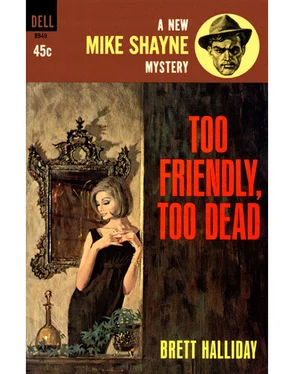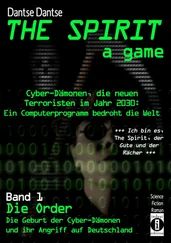Dan Fesperman - The Double Game
Здесь есть возможность читать онлайн «Dan Fesperman - The Double Game» весь текст электронной книги совершенно бесплатно (целиком полную версию без сокращений). В некоторых случаях можно слушать аудио, скачать через торрент в формате fb2 и присутствует краткое содержание. Жанр: Шпионский детектив, на английском языке. Описание произведения, (предисловие) а так же отзывы посетителей доступны на портале библиотеки ЛибКат.
- Название:The Double Game
- Автор:
- Жанр:
- Год:неизвестен
- ISBN:нет данных
- Рейтинг книги:3 / 5. Голосов: 1
-
Избранное:Добавить в избранное
- Отзывы:
-
Ваша оценка:
- 60
- 1
- 2
- 3
- 4
- 5
The Double Game: краткое содержание, описание и аннотация
Предлагаем к чтению аннотацию, описание, краткое содержание или предисловие (зависит от того, что написал сам автор книги «The Double Game»). Если вы не нашли необходимую информацию о книге — напишите в комментариях, мы постараемся отыскать её.
The Double Game — читать онлайн бесплатно полную книгу (весь текст) целиком
Ниже представлен текст книги, разбитый по страницам. Система сохранения места последней прочитанной страницы, позволяет с удобством читать онлайн бесплатно книгу «The Double Game», без необходимости каждый раз заново искать на чём Вы остановились. Поставьте закладку, и сможете в любой момент перейти на страницу, на которой закончили чтение.
Интервал:
Закладка:
As their deeds unfolded it became clear that only Headlight, or Lemaster, was ever certain at any given time about what both sides were up to. But which one was he working for, and toward what end? Lothar’s art was that you weren’t sure, even as Headlight played both sides against the middle.
The McGuffin, or plot point on which the book hinged, was the question of whether the CIA would be able to keep the Soviets from getting their hands on a copy of NATO’s contingency war plans for central Europe. It was one of the novel’s few weak points, which led me to believe that Lothar had made it up. In fact, it was fairly easy to spot the moments when he was winging it, or finessing gaps in his knowledge. His prose may have been powerful, but his powers of invention were weak. This told me that however thoroughly he’d penetrated the operations of both sides, he had never uncovered any of the actual secrets they were trafficking in.
The Lemaster courier network he described was a complex feat of espionage genius, a multilayered structure in which secrets were passed within the covers of old espionage novels. In one of its more clever touches, the rarest books were used for passing the most important secrets. Was that Lothar’s creation, or Lemaster’s?
In Lothar’s version, at least, the information was passed by using book codes, with the code key being sent via separate channels, much as I’d already guessed. But here, too, the device felt unconvincing, which made me suspect Lothar never actually got his hands on a code key. On that point we both seemed to be guessing.
Lothar kept things interesting by setting up a series of close scrapes, and by showing the machinations of the rival spymasters as they tried to pinpoint what Headlight was really up to-Angleton in Washington, Oleg in Moscow. At various times both were convinced that they were getting the best of their rivals, only to believe in the next minute that they were being bamboozled.
Lothar let the reader go back and forth this way until the final twenty pages. In the climactic scene, Headlight passes the coveted NATO report to his Soviet handler in a meeting at a Vienna cafe-the Braunerhof, by God, with Headlight initiating the exchange by entering the very phone booth where Litzi and I had recently reunited. He places a coded call, walks to the newspaper table, and slips the report inside a copy of the German newspaper, the Frankfurter Allgemeine Zeitung. He then leaves the cafe just as his Soviet handler takes the newspaper back to his own table and slips the report inside a briefcase.
So there it was. In Lothar Heinemann’s judgment, Lemaster was a Soviet double agent.
Even after days of believing that this might well be the case, the news hit me harder than I would have expected. I sat there remembering the Ed Lemaster of twenty-seven years ago, swirling wine in his glass and teasing me with his talk of having contemplated betrayal.
But had Lothar really witnessed such a decisive moment, or had he surmised it from his threads of evidence? Even if the former was true, had he really know the details of the item Lemaster placed inside the newspaper? Was the betrayal genuine, or had Lemaster been passing a clever bit of disinformation?
Lothar left unresolved the question of whether Lemaster’s first CIA handler, Breece Preston, had been in on the scheme or merely a dupe. Not that Preston would have appreciated either interpretation. Either way, he didn’t look reliable enough to entrust with millions of dollars to spy for your soldiers.
While Lothar’s verdict on Lemaster was clear, to me the jury was still out. And this was hardly the sort of “proof” I could publish in a magazine story, especially since I wouldn’t even be leaving the store with Lothar’s book. But at the very least, especially if Valerie Humphries’s account was accurate, Lothar’s findings showed Lemaster had been far cozier with the Soviets than his Washington handlers had ever realized or sanctioned. If he wasn’t a double, then he had run one hell of a rogue operation.
But the book’s most diabolical section, as far as the CIA would have been concerned, was the acknowledgments page in the back. Each and every Agency operative portrayed in the book was thanked by name. All you had to do then was match their initials to those of the characters in the book to fill out the entire covert cast. No wonder the Agency had intervened to stop publication.
My handler would no doubt be pleased by these findings, which made me all the more satisfied with the idea of withholding them from the manipulative son of a bitch. And now I would finally learn his name.
I checked my watch. It was 7:43 p.m., dark by now, and I was hungry, thirsty, and needed to pee. I picked up Ziegler’s phone and punched in Lothar’s number. He answered right away.
“Heinz?”
“You’re finished?”
“It’s impressive.”
“The prose, or the contents?”
That’s when I realized that even after all this time, Lothar had retained his authorial vanity. The CIA had not only bottled up his secrets, it had deprived him of his literary moment-reviews, reaction, and, most important, readers. Lothar, who practically lived in bookstores, had never once seen his own work on a shelf or a display table, tucked in among his favorites. So now he was eager to hear at last from his one and only patron.
“Both. Best thing I’ve read in years.”
“Well… it has its problems, of course. But I’m gratified to hear you say it. Truly.”
“You seem pretty sure he’s guilty.”
“As sure as you can be in this business. Meaning not very.”
“But you were winging it on the book codes, weren’t you?”
“An educated guess. Our handler was always convinced that there must be something about the books themselves that held the key, but I never found it.”
“You promised me a name.”
“Try page one-nineteen. I believe you’ve already met him, however briefly. But don’t say it over the phone. By now I doubt we’re the only ones on Ziegler’s line.”
I thumbed quickly to the page, running my forefinger down the column of type until I saw the name Gil Cavanaugh, an assistant to the Angleton character. I was pretty sure I knew who that was, but checked the acknowledgments page, and there it was: Giles Cabot.
I thought back to the funeral on Block Island. Wils Nethercutt, the deceased, and his neighbor and onetime Agency rival, Giles Cabot, confined to a wheelchair even as he faced down a menacing Breece Preston. A perfectly logical choice, but nonetheless amazing. I’d been strung along across half of Europe by a frail invalid who must also be a bookworm. At least I knew where to find him.
“Do you have it?”
“I do. Thanks to your acknowledgments page.”
“A cheap shot at the Agency, but I couldn’t resist. The bastards owed me. Still do. Now for the hard part. Follow Ziegler’s instructions to the letter, but once you leave the store I doubt you’ll be going very far. I just hope that the right people get to you first.”
“Is that a guess, or do you know something?”
“A little of both.”
From out in the store I heard the sound of smashing glass.
“You’re right. Someone’s just broken in.”
“Get moving, Bill. Finish the job, then run like Zatopek. Now! ”
I slammed the receiver and moved quickly to the file cabinet and wrenched it away from the wall. Footsteps pounded through the store. The doorknob rattled. I knelt and reached behind the cabinet, pulling the handle of an old metal flap hinged at the bottom, which opened onto a coal chute. I tossed in the book, wincing in spite of myself as it banged and tumbled. As I peered into the darkness of the cellar I thought I heard the scrape of leather soles below. The flap thumped back into place. I stood and shoved the cabinet back against the wall, then had just enough time to move back behind the desk before the office door splintered open with a crunch of shattered wood. Two men rushed me. One pinned my arms behind my back while the other shouted in heavily accented English, “The book. Where is the book?”
Читать дальшеИнтервал:
Закладка:
Похожие книги на «The Double Game»
Представляем Вашему вниманию похожие книги на «The Double Game» списком для выбора. Мы отобрали схожую по названию и смыслу литературу в надежде предоставить читателям больше вариантов отыскать новые, интересные, ещё непрочитанные произведения.
Обсуждение, отзывы о книге «The Double Game» и просто собственные мнения читателей. Оставьте ваши комментарии, напишите, что Вы думаете о произведении, его смысле или главных героях. Укажите что конкретно понравилось, а что нет, и почему Вы так считаете.












